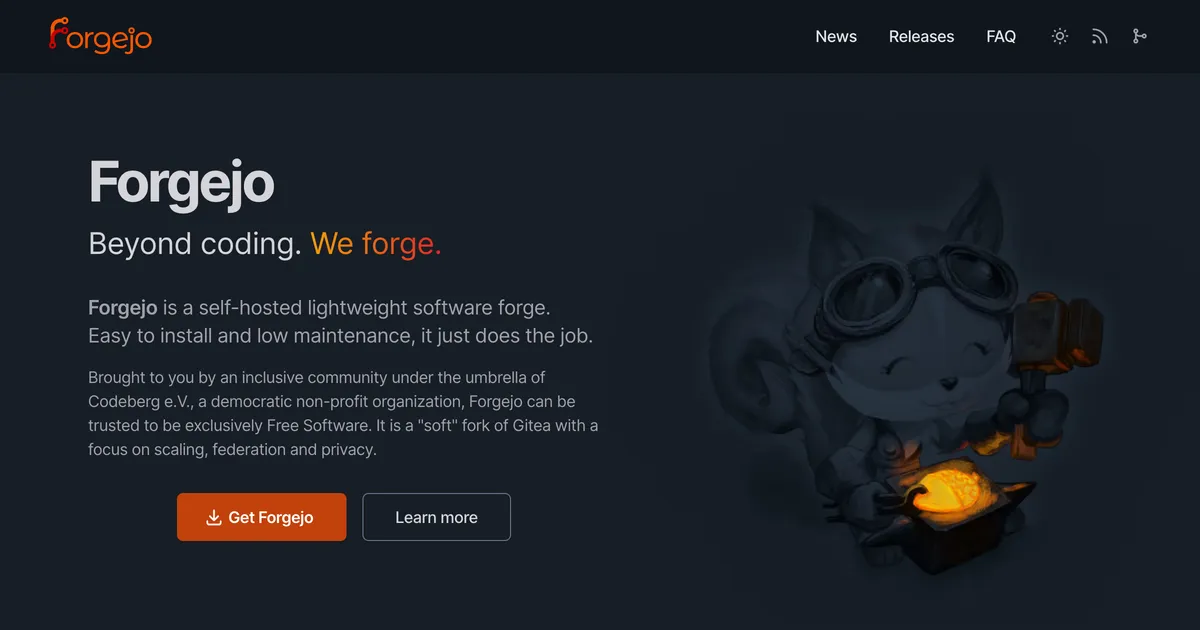- cross-posted to:
- foss@beehaw.org
- cross-posted to:
- foss@beehaw.org
Forgejo is changing its license to a Copyleft license. This blog post will try to bring clarity about the impact to you, explain the motivation behind this change and answer some questions you might have.
…
Developers who choose to publish their work under a copyleft license are excluded from participating in software that is published under a permissive license. That is at the opposite of the core values of the Forgejo project and in June 2023 it was decided to also accept copylefted contributions. A year later, in August 2024, the first pull request to take advantage of this opportunity was proposed and merged.
…
Forgejo versions starting from v9.0 are now released under the GPL v3+ and earlier Forgejo versions, including v8.0 and v7.0 patch releases remain under the MIT license.



Unless you’re selling the software or licenses to it, I don’t really see a reason not to go copyleft. I mean, think about it. If someone tries to make your thing but better, they have to release the modifications, so you can grab it for yourself and suddenly you’re at the same level. If they piggyback off your work, you can piggyback off theirs, and you have the advantage of being the original. Correct me if I’m wrong.
It makes just as much sense if you’re selling it!
Does it? proceeds to compile paid software and release a free package for it
You can do that with permissively licensed software too. Except with those, the party distributing their repackaged version doesn’t have to distribute source code alongside it. A lot of companies avoid copyleft software because they don’t want to or cannot deal with stricter licensing terms. If you’re a company creating commercial software which you intend to sell, you don’t want to use any GPL code, because you want to keep your software closed source to avoid exactly what you described from happening.
This can be exploited by primarily licensing your open source code using strong copyleft (like the AGPLv3) while selling commercial licenses to businesses that don’t want to comply with the AGPL and are willing to pay up. Qt is able to successfully use this even with weaker copyleft (LGPLv3) because it’s used a lot in embedded systems (like smart cars) which cannot comply with the LGPLv3’s anti-tivoization clause.
This means copyleft licenses can make it easier to profit if you’re the author of the code, but of course third parties can more easily profit from permissive licenses.
Torrenting has existed for a long time, yet people still buy software. There is a lot more to software distribution than traditional product sale.
You want to have frequent fixes, compatibility with modern tools, new features and a trustworthy distribution pipeline. These are all things people and corps are willing to pay for in FOSS software.
there’s certainly a camp in FOSS that considers “whatever you like including commercial activity” to be the one true valid version of “free software”
like… if someone wants to take an MIT project, add a bunch of extra features to it keeping some available only with payment, and contribute back bug fixes and some minor features etc, i wouldn’t necessarily say that’s harming the project and this is overall a good thing? it gets the original project more attention
like it’s perhaps a little unfair, but if the goal is quality and scope of the original project - or even broader of the goal is simply to have technology AVAILABLE even if it is with a few - then that goal has been met more with an MIT-like license than it would be with a copyleft license